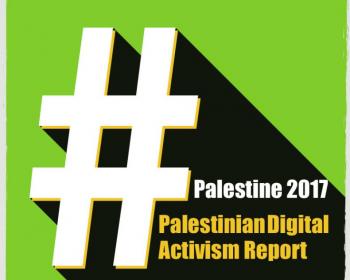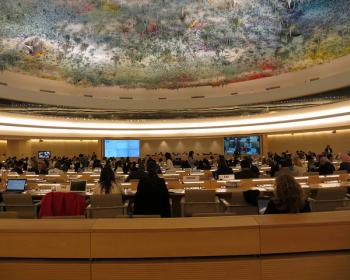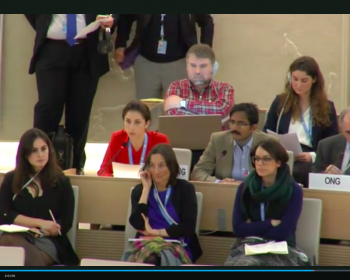Security and privacy
"Facebook: a threat and an opportunity" is the name of the latest instalment of May First/People Link's audio interviews and discussions, as part of the Need to Know project.
7amleh – The Arab Center for the Advancement of Social Media published its annual research report on Palestinian digital activism. The report, titled #Palestine 2017, provides information about internet access and usage, examines the most dominant social and political campaigns and viral hashtags, and monitors human and digital rights violations against Palestinians.
APC, along with 93 civil society organisations from across the globe, sent a letter to the Secretary General of the Council of Europe requesting transparency and meaningful civil society participation in the negotiations of the draft Second Additional Protocol to the Convention on Cybercrime.
GenderIT.org interviewed Y. K. (Della) Chang, one of the founders of APC member organisation Jinbonet, who was recently appointed as a Personal Information Protection Commissioner in South Korea.
“It is all about education, which Arab states don’t always care about. It is a matter of culture, educating the younger and also the older generations.”
APC’s subgranting programme, now in its third year, has so far awarded a total of USD 291,534 to support its members in achieving APC’s vision. Sixteen member organisations have been recipients of 17 grants. The call for campaign and research grants is still open.
The UN Human Rights Council's 37th session is taking place in Geneva. APC has participated with a diversity of statements and sessions on internet rights, including “Digital identity, smart cities and other data intensive systems: The implications for the right to privacy”.
The Association for Progressive Communications, ARTICLE 19, IFEX and Privacy International are gravely concerned about the growing crackdown by states on secure digital communications, including encryption and technologies that enhance anonymity and confidentiality.
APC welcomes the opportunity to engage in this dialogue with the Special Rapporteur on the right to privacy. We commend his report's gendered approach to privacy and surveillance and the recognition that violations to privacy form part of online gender-based violence.

Association for Progressive Communications (APC) 2022
Unless otherwise stated, content on the APC website is licensed under Creative Commons Attribution 4.0 International (CC BY 4.0)











